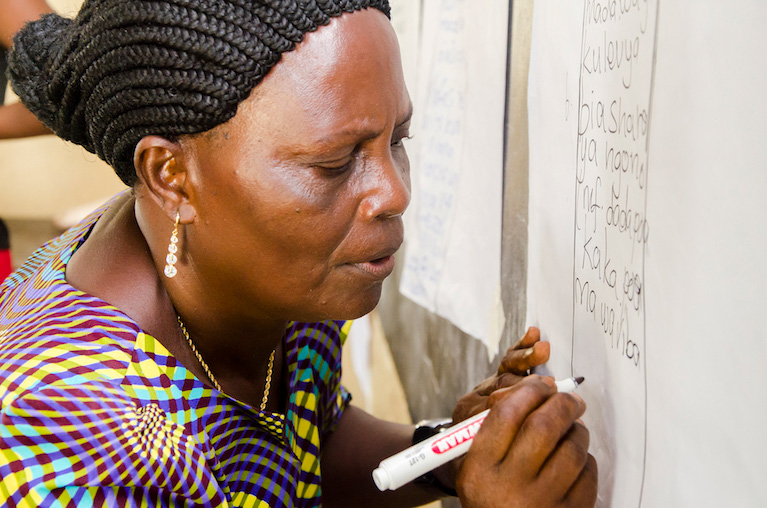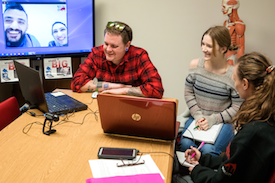How IREX can help communities respond to COVID-19 or prepare for future pandemics

As the COVID-19 pandemic requires communities to mitigate the virus’s impact, here are ways IREX can provide support to address the current pandemic or prepare for future outbreaks.
Our work in this area draws, in part, upon our experience in Liberia during the Ebola crisis. IREX, supported by USAID, worked with the Ministry of Health and Social Welfare to produce public education campaigns; mobilized dozens of media organizations to produce jingles, dramas, and skits that highlighted Ebola-related information; and hosted 67 trust-building dialogues between government officials and local communities.
Defending against misinformation on health topics
Misinformation about the pandemic is spreading across social media like wildfire, confusing people about what actions they should take to protect themselves and their families.
IREX’s Learn to Discern (L2D) program can help educate citizens on how to identify false information about health issues, seek out credible sources, and empower individuals to call out rumors and falsehoods about COVID-19.
At a time when many in-person activities are not possible, L2D can build skills to resist manipulation effectively through online tools, such as Very Verified and The Great Courses, and social media messaging.
Learn more about how media programs are countering misinformation about the coronavirus.
Training journalists to cover current and future pandemics responsibly
Most journalists are not public health experts, yet they communicate vital public health information that allows governments to effectively enact policies and encourage behavior change.
Drawing on IREX’s long history of training journalists and media organizations, we can design programs that enhance health-related editorial standards; educate journalists on protecting their own health while reporting on or from infected communities; or integrate key public health messages into entertainment programing. With funding from USAID, we've published tips and resources for covering COVID-19.
Supporting educators’ and students’ transition to online learning

The pandemic has disrupted education around the world. We’re working with educators and institutions to help them adapt.
This includes supporting universities in their transition to online and blended instruction, developing national online training for teachers, creating and delivering effective MOOCs on how to engage students in virtual learning, teaching proven strategies for providing psychosocial support to students and educators, and facilitating virtual exchanges as an alternative to in-person exchanges.
Building trust between civil society and government/health officials
Many societies harbor distrust toward their governments, which undermines the credibility of government spokespeople who must provide vital information during pandemics.
IREX can design programs that bring together community leaders and public health officials to help all stakeholders respond to an emergency and earn citizens' trust. For example, with support from the Ford Foundation, we launched the Kenya COVID-19 Dashboard to promote government transparency and accountability during the pandemic.
Training leaders on data-informed public health decisions
Public health crises thrust senior elected officials, who are not health experts, into the position of making dramatic decisions about social distancing, health resource rationing, and protection protocols.
Effective decisions must be made based on available health data, which many leaders struggle to synthesize and interpret. IREX’s data-informed decision-making trainings can equip leaders with the skills they need to make informed choices on critical health topics in moments of crisis.
Improving health data systems
Accurate health statistics, and the data flows that enable them, are essential for governments to assess the scale and impact of pandemics and fashion appropriately targeted responses.
IREX’s Data Compass is a diagnostic tool that can map data flows for health departments or other government agencies, and provide insights into how to improve data collection and analysis systems to enhance responses to pandemics.
Download this page (PDF, 4.2 MB)